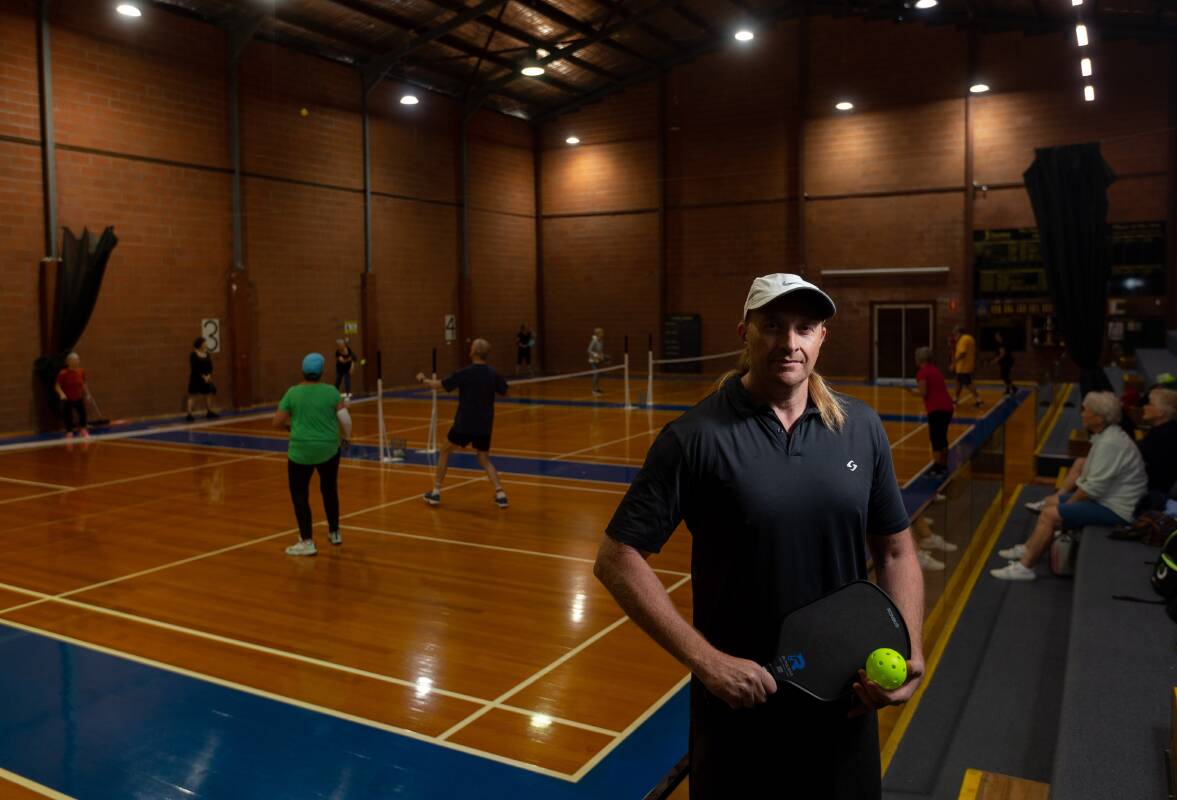




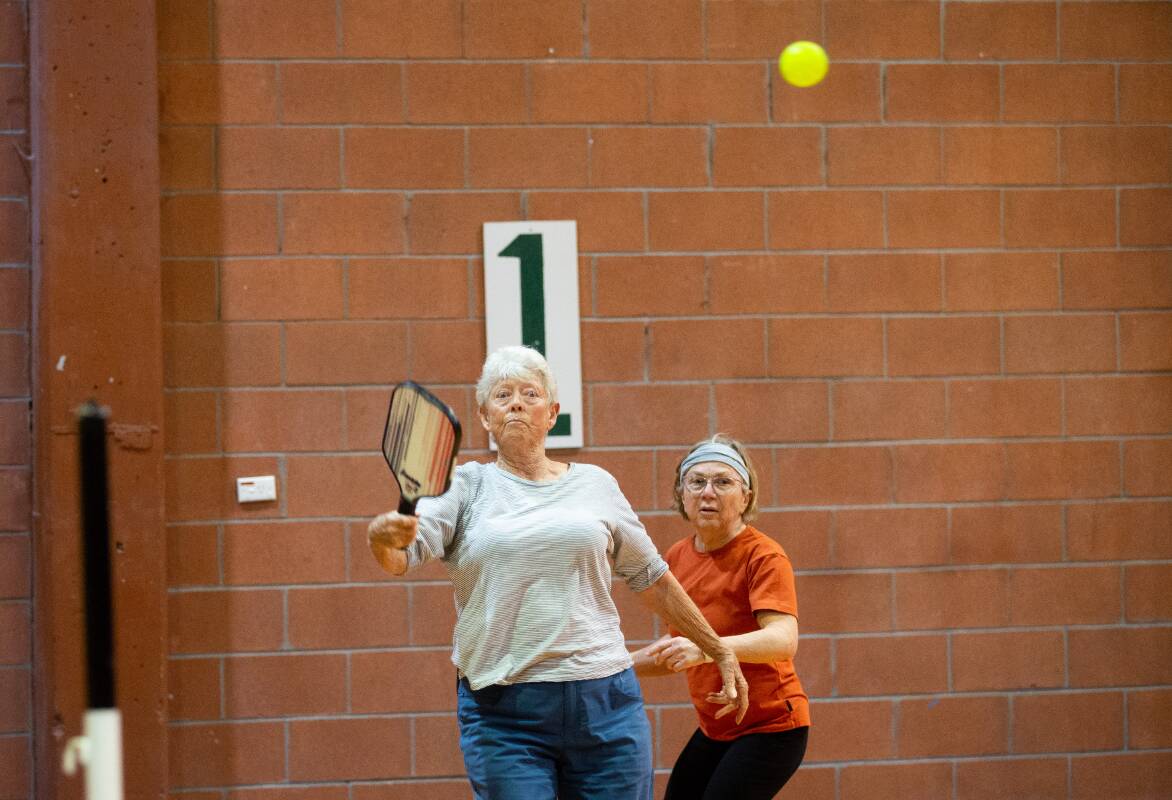
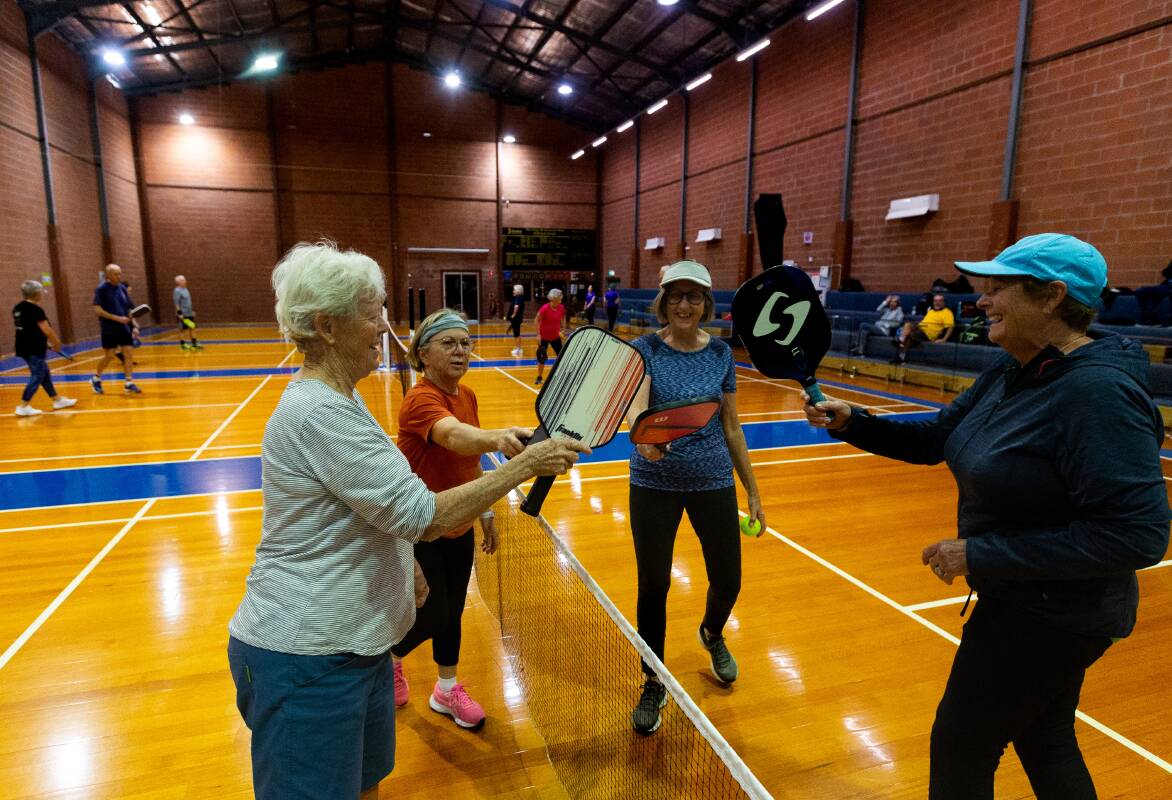
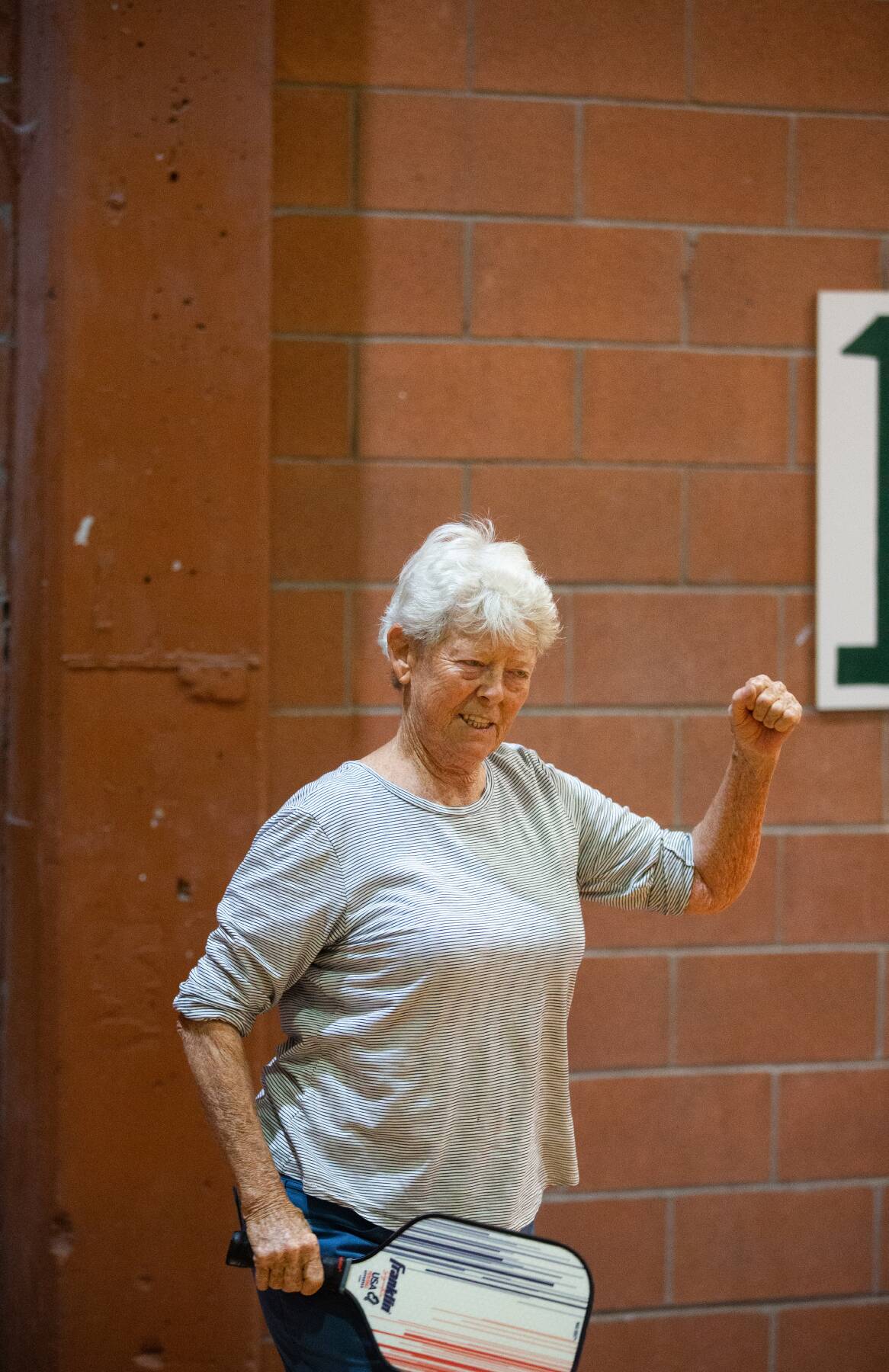
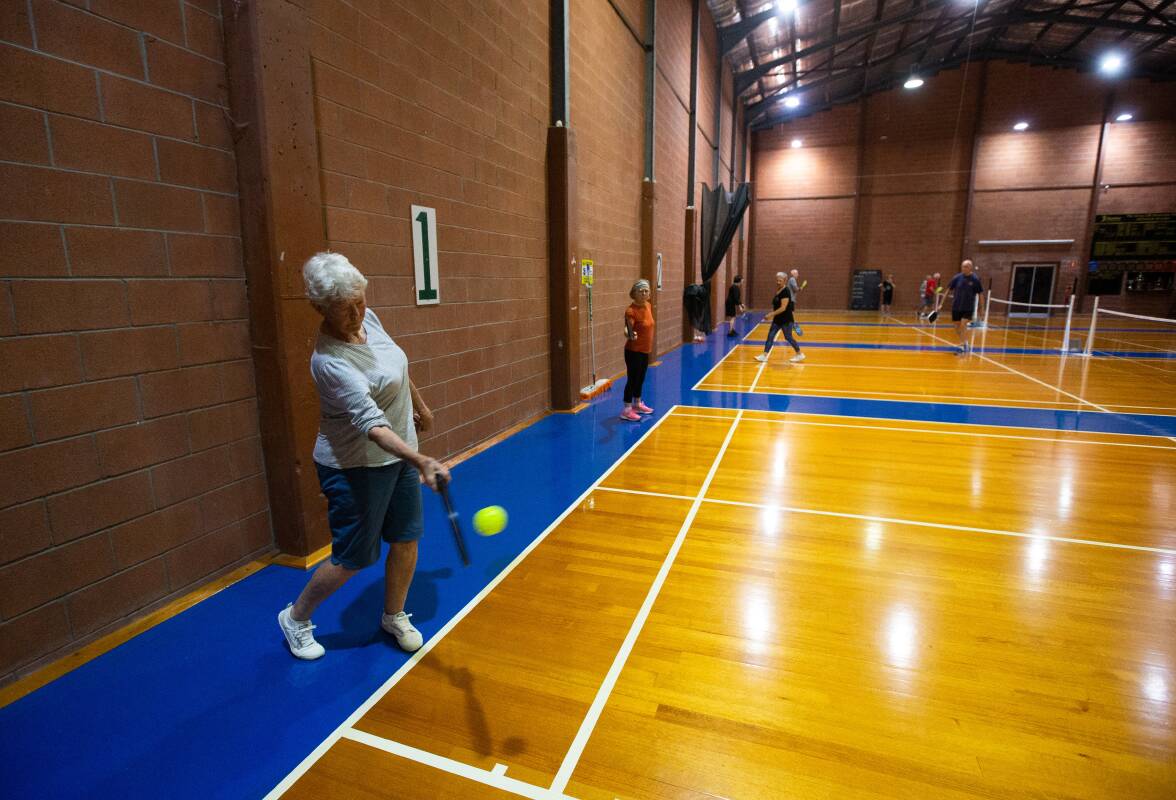
IT'S mid-morning on a Friday and I'm at Hunter Badminton's courts in Wickham to investigate the peculiarly-named game of pickleball.
Before I even step through the front door a loud popping sound dominates.
Once inside, the pop echoes loudly around the indoor badminton court, closely followed by the squeak of joggers on wooden floors and the laughs of people genuinely enjoying themselves.
If you've heard one thing about pickleball, it's likely to be the tag-line, "it's the fastest-growing sport in the United States."
While it's an effective marketing slogan, it also happens to be true.
The paddle sport - which can be described as a cross between of tennis, table tennis and badminton - is massive in the US. According to the Sports and Fitness Industry Association's 2022 report, 4.8 million Americans are playing pickleball.
It's led to a wave of under-used tennis courts being converted for pickleball, which is played on a quarter of the space.

It hasn't hurt that celebrities have given pickleball their ringing endorsement. Billionaire Bill Gates was an early convert, TV host Ellen DeGeneres is "obsessed" with the sport and Hollywood actor Leonardo DiCaprio reportedly has a hit every day.
Even athletes like tennis stars Nick Kyrgios and Naomi Osaka and NFL Super Bowl-winner Patrick Mahomes are part owners of Major League Pickleball team, Miami.
There are also plans for pickleball to become an Olympic sport. Experts predict Brisbane 2032 is the most likely target.
AUSSIE PICKLEBALL
In Australia, Newcastle was an earlier adopter. In January 2018 American expat Mary-Beth Woolley walked into the Wickham's badminton centre to extol the virtues of pickleball, following a holiday in the US.
Woolley found a receptive audience in Hunter Badminton Association's then president Tony Morgan and secretary Margaret Smith.
Morgan, who is a professional badminton coach, was so intrigued he headed to Sydney for a demonstration.
"I went down there and I got the bug," Morgan says. "I got the taste for it."
Hunter Pickleball became a sub-committee of Hunter Badminton before branching out on their own in December 2019.
Since then Hunter Pickleball has recruited 230 members and expanded to PCYCs in Nelson Bay, Cessnock, Morisset, and Windale and The Forum at Callaghan.
There are also outside courts in Beresfield and Bar Beach and plans to convert several tennis courts at Floraville for pickleball.

Including non-registered members, it's estimated about 600 people are regularly playing pickleball in the Hunter.
The ages range from 11 through to 84, but the sport is overwhelmingly most popular with the over-50 age group.
Hunter Pickleball president John Morris says the sport's growth locally is only being restricted by the number of courts.
"Hunter Pickleball has been fairly involved in the growth of the sport in NSW and then Australia, just by virtue of the fact we were the first club," Morris says.
Pickleball's low impact and minimal running has made it an attractive game for former tennis players unable to continue with the rigours of the racquet sport.
"I play tennis and badminton, and this is not quite as taxing, but you still get plenty of exercise," Hunter Pickleball treasurer Margaret Smith says.
Pickleball's other major selling point is the social aspect.
The sport is predominantly played in doubles on a court the quarter of the size of tennis, so it allows for close social interaction with partners and opponents.
"What I like is that everyone laughs, either with you or at you," Morris says. "But you know it's not a serious thing. They're laughing with you.
"If you stuff a shot up, everyone falls down laughing and that's brilliant. It's a relaxing thing while you're getting exercise."
THE RULES
Pickleball was created in Washington state in 1965 by three fathers - Joel Pritchard, Bill Bell and Barney McCallum - looking to entertain their children on a rainy day.
Using table tennis bats and a perforated ball, the game quickly turned into a hotly-contested battle between the adults.
There are disputed stories surrounding the origins of the sport's name. These include it being named after a pickle boat (when leftover crew are thrown together) and Pritchard's dog.
"The urban myth is this dog used to run off with the ball and the dog's name was Pickles," Morris says.
"But there's other stories that said that Pickles didn't turn up until 10 years after the game was invented."
The hard-plastic perforated ball is the most unique feature of the sport. Most indoor balls have 26 holes and outdoor ones have a maximum of 40.
The ball is served underarm diagonally from the base line and only the server or serving team can score points. Points are scored like tennis, when the ball is hit out of bounds or into the net or when it bounces twice.
The pairing that reaches 11 points first wins the match, but the victors must be at least two points ahead. For example, if both teams are on 10 points, the winner must reach 12.
Another feature that separates pickleball from tennis is "the kitchen", the no-volley zone near the net which prevents smashes and leads to longer rallies.
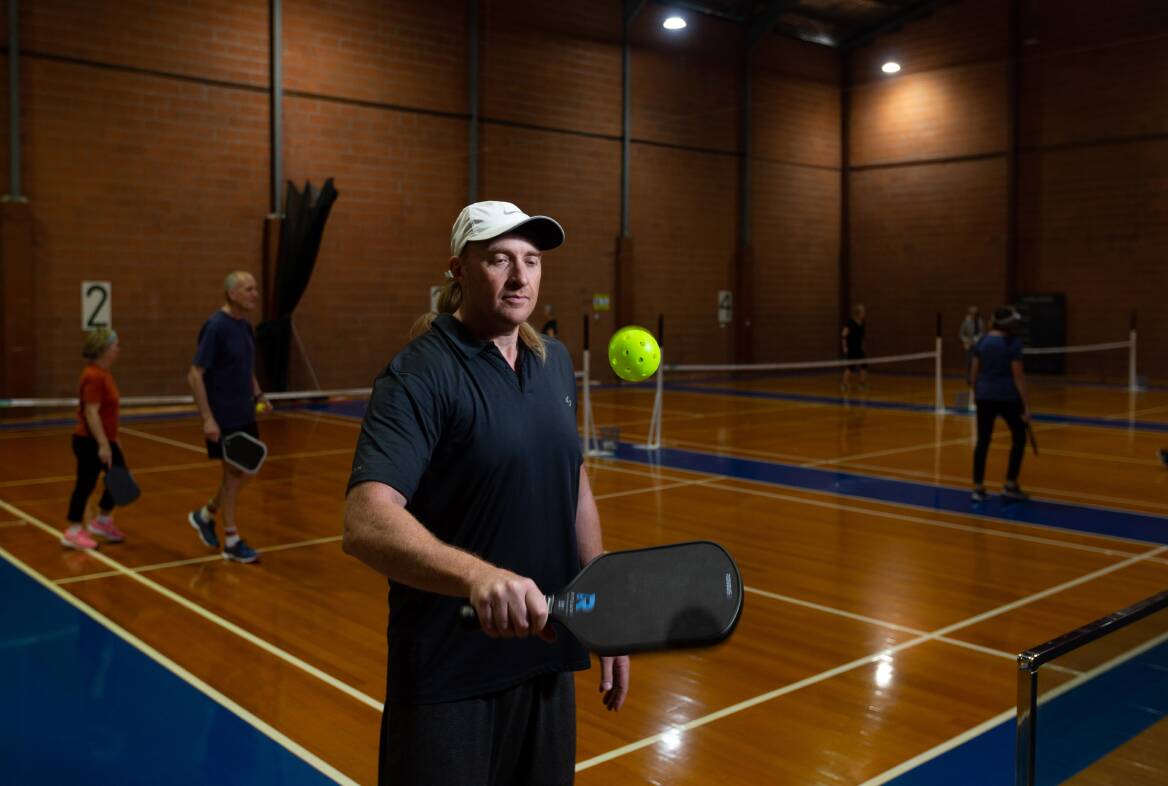
While the game is easier than tennis to play initially, Tony Morgan, who has since starting coaching pickleball, says it's still a challenging sport.
"Hand-eye coordination and reflexes helps, especially as you move up," Morgan says.
"When you're playing the stronger players, the opportunities to attack the ball are less.
"Patience and strategy comes in. Strategy is also to speed the ball up and aim at the person, move players around and then finish the rally off."
THE NEXT LEVEL
Pickleball might have begun as hit and giggle, and for many people that's the appeal, but it's increasingly growing at the elite level, too.
Since first learning the sport in 2018, Morgan has become arguably Australia's "Mr Pickleball".
His business PB Sports sells pickleball equipment nationally, he commentates on live-streamed tournaments, and hosts the weekly The Pickleball Podcast with New FM's Mark Krivo and Jade Leeder. The trio have produced more than 80 episodes.
In March Morgan also represented Australia in their gold-medal teams victory at the Asian Pickleball Open in Thailand.
Morgan is also increasingly coaching pickleball in schools. Juniors are seen as an under-utilised market for the sport.
"Every kid who gets exposed to it, loves it," Morgan says. "I've found the same with badminton, being a low-profile sport, no one knew about it.
"But once they do, kids absolutely love whacking balls."
In the US there are two competing professional tours in The Association of Pickleball Players (APP) and the Professional Pickleball Association (PPA), who have fiercely fought over elite players.
Professional pickleball in Australia is also becoming competitive off the court, too.
The Pacific Pickleball (PPL) is the official professional league of the Pickleball Australia Association - which boasts 6,900 members.
It's next major event is the Pacific Pro Brisbane '23 from September 8 to 10, with $50,000 in prizemoney up for grabs.
The PPL has also announced a teams format, with the Brisbane Breakers, Sydney Smash, Melbourne Mavericks, and the Gold Coast Glory to be the inaugural sides.
A rival National Pickleball League (NPL) has also announced its intentions to launch its own "premier professional pickleball league", with round one scheduled for March 1, 2024.
The NPL is advertising a prizemoney pool of $100,000.
"That's going to attract a lot of tennis players," Morgan says.
"If you can't crack it on the tennis scene, I can see a lot of players coming across because there's gonna be a lot of players chasing the money.
"Also I think when you're on a team, even if your team loses, you're guaranteed to win $600 to $800 for the weekend.
"Both of those guys [PPL and NPL] are talking about having a national league and a second-tier league as well.
"We've made some enquiries. We [Hunter Pickleball] are only one or two marquee players from having a team."







